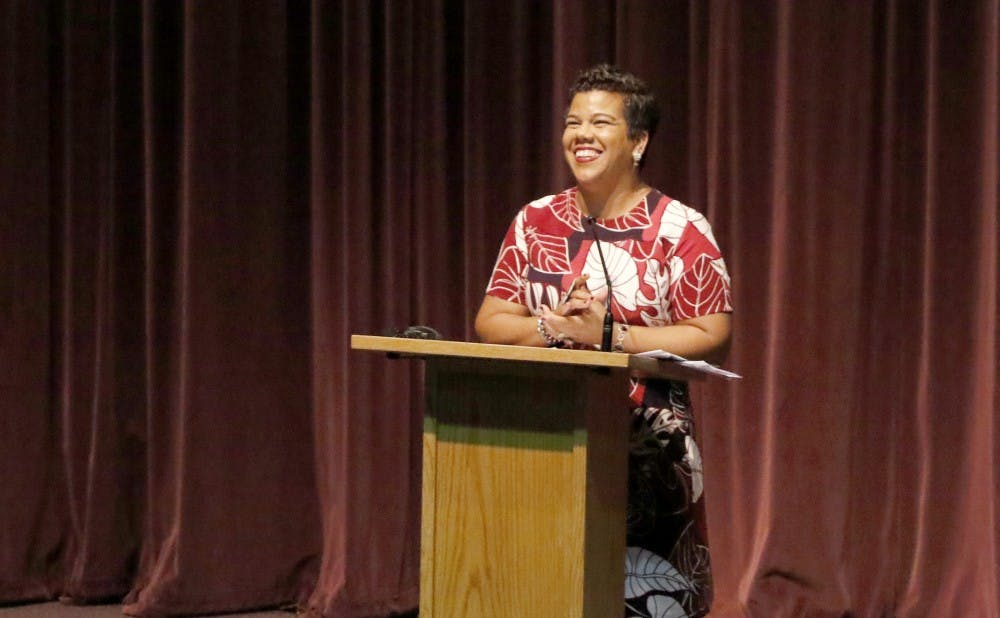Former Green Party vice presidential candidate and activist Rosa Clemente emphasized the importance of solidarity in minority communities in an on-campus speech Thursday night.
Clemente's keynote address—which marked the start of Hispanic Heritage Month and was organized by Mi Gente, Duke’s Latino/a Student Association—was delivered to a crowd of approximately 150 students, faculty and community members at Griffith Film Theater and examined several different aspects of modern race relations.
“I say to Latino and Latina people that the #BlackLivesMatter is your call. We are reclaiming humanity with that hashtag,” Clemente said.
Clemente's speech focused on Afro-Latino individuals and the complicated ways in which they experience race. She stressed the need for a broader racial identification system and cited examples of individuals who had been racially profiled, including her own daughter.
“The minute my daughter came out, the system was already telling her how to identify,” Clemente said, noting that doctors had marked Hispanic on her daughter’s birth certificate without consulting her first.
Clemente spoke about the connection between immigration and race, describing the difficulty Afro-Latino immigrants have with identifying as black upon entering the United States given the prevalence of police brutality and discrimination.
“You must go through the process of decolonizing your mind,” Clemente said, explaining how white supremacy can be engrained in people of color.
She also stressed that social organization and activism is the duty of all minority communities. Freshman Erick Aguilar, Mi Gente's first-year representative, agreed.
“One of the biggest issues students face is apathy,” Aguilar said. “The talk Rosa gave made us realize, especially people of color, that the system is working against marginalized individuals. We need to be passionate about these issues to start working against them."
Clemente was raised in New York City, the daughter of Puerto-Rican parents of African descent. During her childhood, she said her mother would tell her not to speak Spanish at school for fear of discrimination. Later, Clemente attended the University of Albany and Cornell University, experiences that she said her collegiate studies helped her come to an understanding of her black identity. A conversation with a friend led her to write “Who is Black?”—an article that received national attention.
“A friend had told me that I was black but not really black. The definition of blackness at the time did not include those of Latino descent," Clemente said. "I thought to myself that these social circles must be more inclusive."
Durham resident Dede Jackson said she found Clemente's words inspiring.
“I very much enjoyed the event. It was necessary and relevant to current events. People need to educate, organize and mobilize on such important issues,” Jackson said.
A variety of organizations co-sponsored the event, including Duke Student Government, Duke's chapter of the National Association for the Advancement of Colored People, Students of the Caribbean Association and Duke Ethiopian/Eritrean Student Transnational Association.
Mi Gente co-President Gloria Tomlinson, a senior, said she thought of inviting Clemente after hearing her speak at the National Conference on Race and Ethnicity. She emphasized the need for similar events to remind the community of the issues marginalized people face.
"On a campus like Duke, we forget that there are greater things out there," she explained. "Mobilization is hard but so important. In order to address Duke problems we have to mobilize organizations like this."
Get The Chronicle straight to your inbox
Sign up for our weekly newsletter. Cancel at any time.

